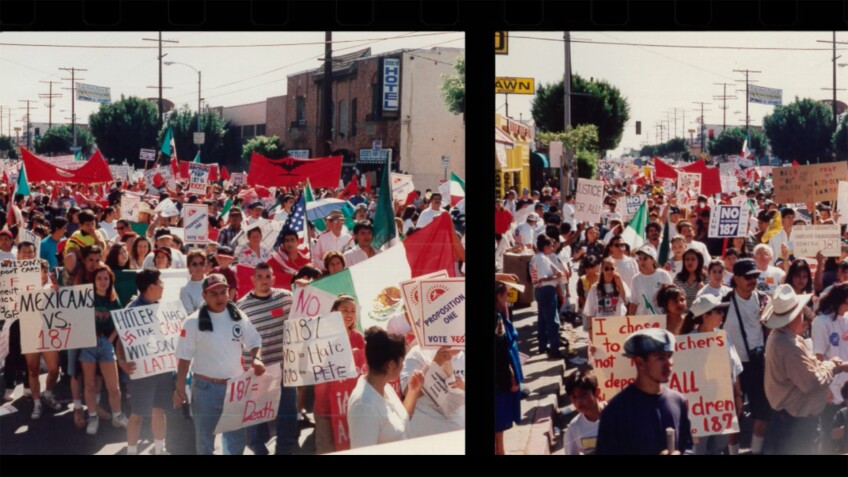Oral Histories: The Organizers Against 187 and a Dreamer Dealing With Its Aftereffects

Behind every good campaign are organizers who help mobilize the masses toward a common goal. As part of "187:The Rise of the Latino Vote," we're publishing the oral histories of some of the movement's pivotal players and the people whose lives it affected. Every week, new interviews will be added, adding to this rich archive.
This week, meet four of the figures behind the anti-Proposition 187 campaign and the dreamer who, decades later, is dealing with the ballot's consequences. Get an inside look at the effort it took to galvanize the Latino vote with their oral histories. Understand the consequences of such anti-immigrant policies and the activism to thwart them.
Kevin de León

Born in Los Angeles in 1966, Kevin de León is the son of a single, Guatemalan-born immigrant mother, Carmen Osorio, who supported the family working as a housekeeper, among other jobs. His father Andrés León, also from Guatemala, was largely absent from his life. De León was an organizer and a teacher of English as a Second Language, U.S. History and Civics when Proposition 187 came on the ballot. He helped put together the resistance against Proposition 187 and a march that would become a watershed moment in Los Angeles and California history.
At that time, he was a college dropout from the University of California in Santa Barbara. Years later, in 2003, he graduated with honors at Pitzer College. Today, he is a lecturer at the UCLA Luskin Public Affairs and a Distinguished Fellow for Climate, Environmental Justice and Health, with the USC Schwarzenegger Institute. Listen to his full interview.
Fabian Núñez

At the time of Proposition 187, Fabian Núñez was a 27-year-old organizer making little money at a nonprofit called One Stop Immigration in the eastside of Los Angeles.
Fast forward 25 years, Núñez has held one of the most powerful public positions in the State of California (Assembly Speaker) and left a mark in state policy.
Like others of his generation who faced Proposition 187, he went from a young organizer to politics or another career involving public policy. Listen to his full interview.
Juan José Gutiérrez

Juan José Gutiérrez was the executive director of a Boyle Heights organization called One Stop Immigration when a group of citizens in Orange County decided to put an initiative on the ballot targeting services to undocumented immigrants.
Proposition 187 would have denied non-emergency health care, public education and other services to undocumented immigrants. It would allow state officials to verify people's legal status or deny services to those suspected of not being in the country legally.
Gutiérrez, along with regional directors of the organization in Pomona and Santa Bárbara, worked on a plan to mobilize immigrants to march against the voter initiative. Listen to his full interview.
Miya Iwataki

At the time of Proposition 187, Iwataki was the director of the Los Angeles County Office of Diversity and Cultural Competency. As such, she was already working in immigrant rights and in contact with other organizations, like the Coalition for Humane Immigrant Rights of Los Angeles (CHIRLA).
She says that Proposition 187 galvanized the Asian Pacific Islander community, which was extremely diverse. But the organizing that happened at the time brought a lot of groups together.
“In the Asian community at that time were a lot of individual organizations. The Thai CDC, the Chinatown Service Center, United Cambodian Community, we all had our separate organizations. But this was an issue taking away social, human, health and educational services from our immigrants. And it really brought us together,” Iwataki says. Listen to her full interview.
Raquel Cetz

Raquel Cetz and her mother arrived in Los Angeles from Yucatán, México, four years after Proposition 187 passed. She was two years old. Growing up in the Koreatown neighborhood of Los Angeles, Cetz knew from an early age that she was not born here and that she was undocumented.
When Prop 187 passed in 1994, she wasn't born yet, and her family was not in the United States, but she now believes that what happened in those years has continued in different forms throughout the nation, and it has continues today. Listen to her full interview.
Top Image: A rally against Prop 187 | Still from "187"








